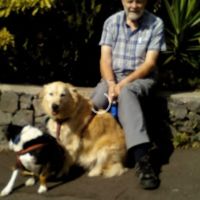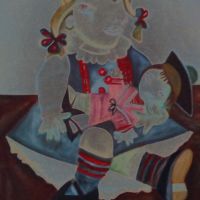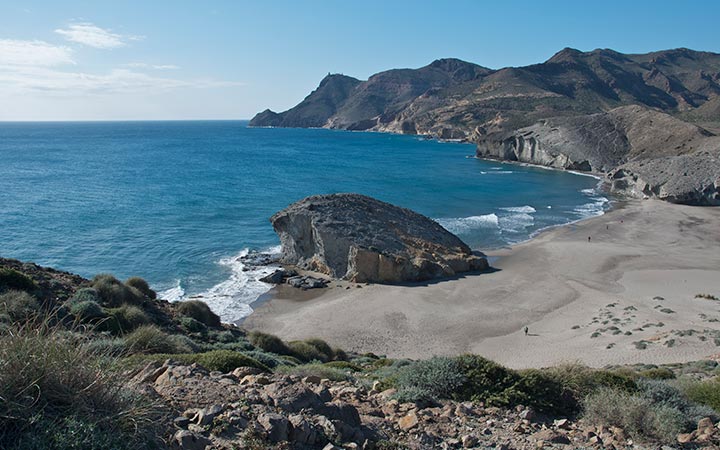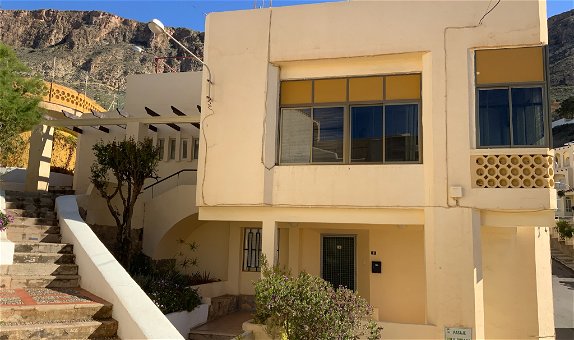Graffiti in 1976 could get you shot dead
Super helpful member
~Fascinating story in Sur in English~
August 1976. Spain was taking its first steps towards democracy during the transition period following Franco's death. Adolfo Suárez had been president of the Spanish government for just a few weeks after replacing Carlos Arias Navarro. It was after dark on 13 August when 19-year-old Javier Verdejo Lucas was shot dead in Almeria by a Guardia Civil officer. He was killed for painting graffiti on a wall near El Zapillo beach. His accomplices managed to get away.
The political activist and member of the Guardia Roja (Red Guard, the youth wing of the Partido del Trabajo de España, PTE, the Labour Party of Spain) and son of a pharmacist who was a Franco supporter and former mayor of Almeria, had been writing the slogan 'Bread, Work and Freedom' when shot. He didn't get past the fourth letter.
His death caused indignation among his fellow labour activists across many parts of Andalucía. In the province of Malaga a service was organised in the local parish church. Party members made a call to people in Malaga to attend the service, travelling to different parts of the city to distribute leaflets. In the Capuchinos district the person in charge of leaflet distribution was a young woman from a left-wing family, María del Carmen Sánchez Aranda. She herself was 19, but still regarded as a minor under the laws at that time. She was also a member of the Guardia Roja, having enrolled during her time as a senior pupil at the Santa Rosa de Lima secondary school. Today she is one of the Socialist (PSOE) opposition councillors at Malaga city hall.
While she was delivering those leaflets she was arrested. "At one point a man put his hand on my arm and said: 'I'm a police officer, you're under arrest.' He was in civilian clothes because he was from the secret police (undercover police monitored people regarded as subversives). A police van showed up and they put me into it. My only moment of fear was when I stepped into the van because I was reminded of other colleagues who had been mistreated by the police but they treated me fairly at all times," says Sánchez Aranda.
The final destination of that police van was the provincial police station for the Policía Armada force, located in the Aduana customs building that is now the Malaga museum. “When I arrived at the police station they put me straight into a cell. My mother's cousin was a police officer and was on duty. When he spotted me, he spoke to me and asked me if my parents knew anything of this and I told him no, so he took me out of the cell to another room, where I sat and waited for someone to take me before the commissioner to take my statement.
“Once before the commissioner I acknowledged the facts as they stood as I had been carrying a bag full of leaflets. His parting comment was that, given that I looked younger than I was, had I been his daughter, he would have given me a beating and slammed me against the wall," she says.
After questioning, and once her relative in the police had notified her parents, "who were very upset, especially my mother", María del Carmen Sánchez Aranda was transferred to the courthouse at Muelle de Heredia, where her hearing barely lasted "a quarter of an hour".
The judge decreed that she be detained, pending trial, at the provincial prison in Cruz de Humilladero. The charges were for crimes of “public order nuisance and distribution of subversive propaganda”.
“There, I met another girl I knew, Encarni, who was a member of Bandera Roja [Red Flag - the Communist Organisation of Spain, a Maoist party] and had been detained by the Guardia Civil. She had been beaten and threatened."
Sánchez Aranda spent around one month in the women's section of this Malaga prison. "I was fortunate that prison staff were polite and fair and the other inmates also treated me well because they had great respect for political prisoners. In the three days that I was in isolation, I had a lot of time for reflection and realised that I had taken a very important step in my commitment to politics. Although it pained me to see my family upset by these events, I was acutely aware that democracy was just around the corner, so I gathered the courage to spend that time in prison in the best possible way, no dramas," she says. She does add that the worst thing about it was the prison food, which was "disgusting".
Her mother, living nearby in the district of Carranque, brought her lunch and dinner every day as well as toiletries and bedding. All goods were handed over to the prison officers to give to her daughter, whom she got to see on just a couple of occasions.
Meanwhile, the family had also hired a lawyer to organise her defence. That lawyer filed an appeal against her continued detention, requesting her release on bail on the grounds that an amnesty law was being negotiated at national level that would likely favour political prisoners.
The court heeded the defence counsel's request and, less than a month after her arrest, Sánchez Aranda left the prison to await a trial - that was never held. The amnesty law came into force in October 1977, which pardoned her for the alleged crimes.
Once she had regained her freedom, Sánchez Aranda continued her commitment to the youth organisation, the Joven Guardia Roja (where she met her future husband), and the main PTE party. She would still encounter some risky moments such as when leaflets calling for freedom flew off the motorcycle she was riding, landing in front of the Guardia Civil barracks in Capuchinos. A patrol gave chase, but she managed to elude them.
As the years went by she joined the regional Labour Party, led by Isidoro Moreno, and became involved in several political movements such as the one for Peace, Disarmament and Freedom and the founding of Los Verdes (a green movement). In 1992, encouraged by a former Socialist councillor Amparo Bilbao, she knew from the PTE, she joined PSOE, the party for which she stood as councillor from 1999 to 2011 and again from 2019 to the present day.
“I have no regrets. I came from a left-wing family that had been through very tough circumstances. In those final years of the Franco dictatorship and then the transition to a democratic government, I fought for what I believed in: democracy. I was aware that I was involved in a political set-up that carried risks with it, that I could be arrested, or even something worse like what happened to my colleague who was shot dead in Almeria, but I believed that it was what I had to do and I did it”.https://www.surinenglish.com/lifestyle/malaga-city-councillor-jailed-for-her-political-20240308115355-nt.html?







 My name's Alex and this is my website all about Roquetas de Mar in Spain. Register now for free to talk about General Roquetas de Mar discussion and much more!
My name's Alex and this is my website all about Roquetas de Mar in Spain. Register now for free to talk about General Roquetas de Mar discussion and much more!












